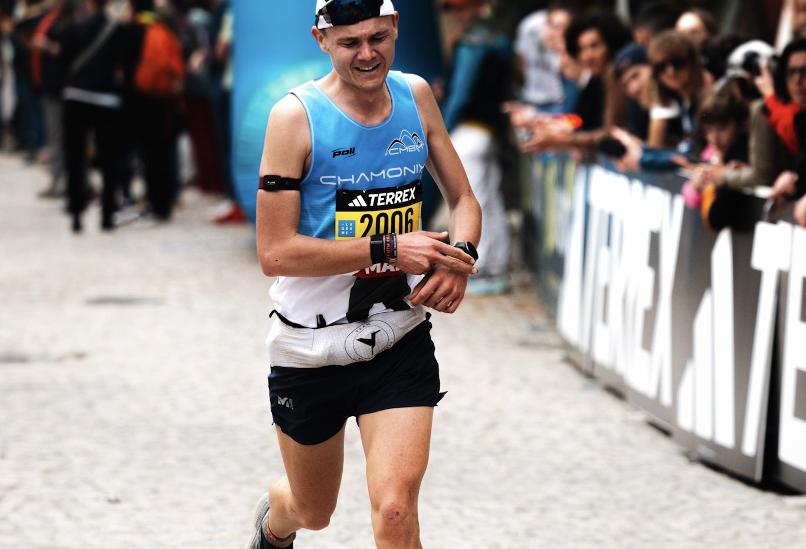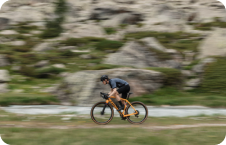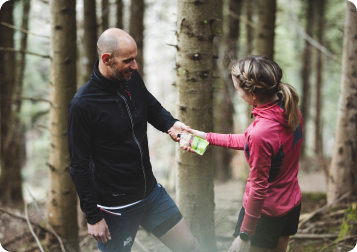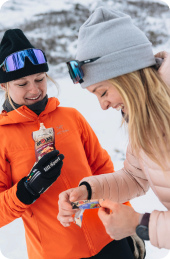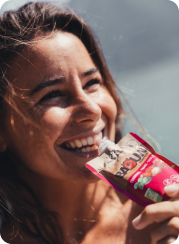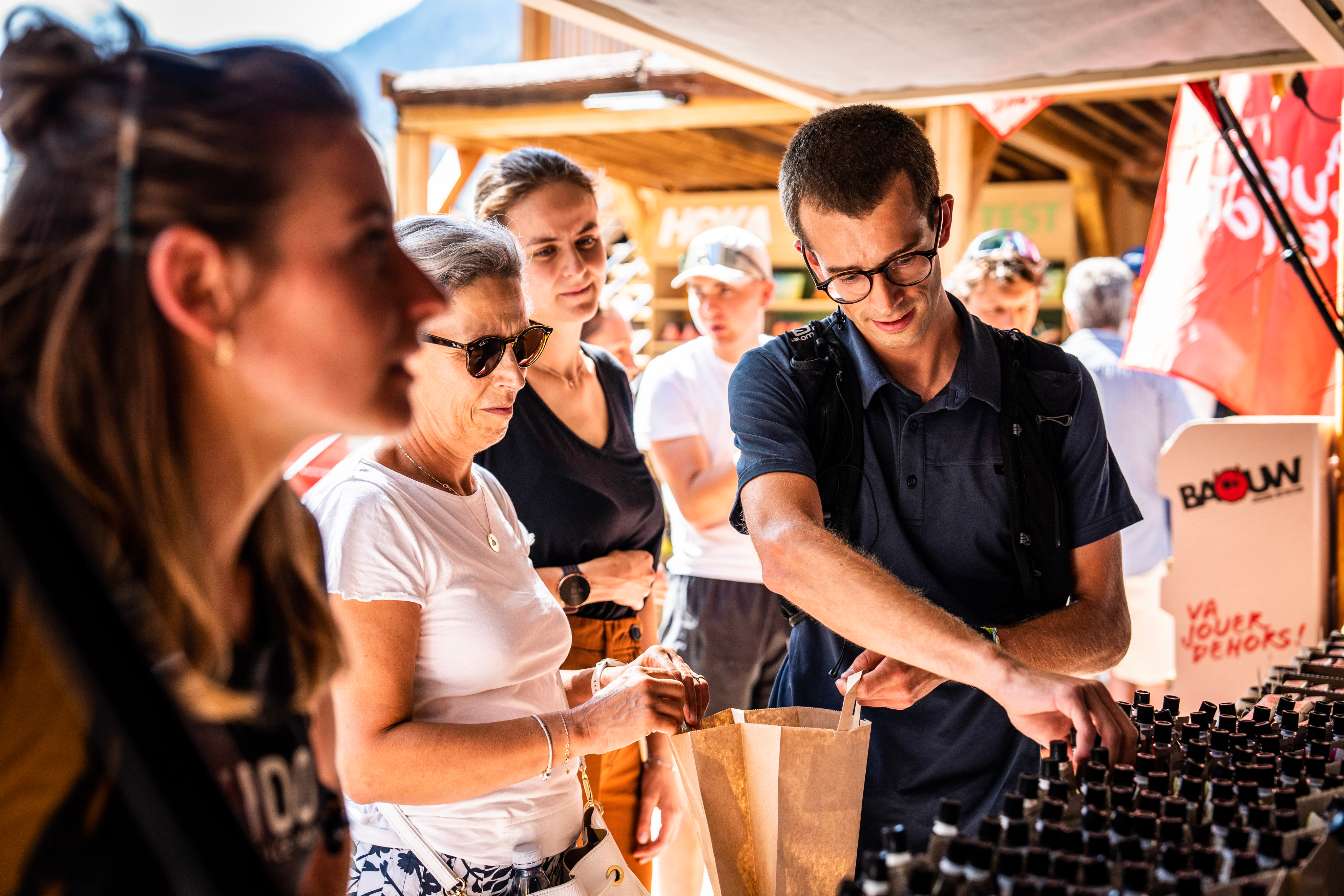When we think of improving sporting performance, we often think of training, diet or energy supplements like our compotes et Baouw gels that you can consume during intense effort. But there's an often underestimated factor that can make all the difference: sleep. Getting a good night's sleep is an essential factor in achieving your goals and performing as you should during your endurance events.
The importance of sleep for sporting performance
You've probably already heard about it: sleep isn't just a moment when your body rests passively. On the contrary, it's a real phase of reconstruction and optimisation for the body. During this period, the body is busy with a multitude of tasks: it regenerates muscle tissue, replenishes energy reserves, balances the hormones essential to physical and mental performance...
Profitons-en d’ailleurs pour te rappeler n the fight against free radicals... ;)
In short, your body has its work cut out for it! But how does it work in practice?
The relationship between sleep phases and a successful sports session
Sleep is not a uniform block. It's made up of several cycles, each lasting around 90 minutes, encompassing light sleep, deep sleep and REM sleep (when you dream). Each phase plays a specific role in recovery:
- light sleep: this is a transition phase that prepares your body to enter deep sleep. This is a time when the body is reducing its metabolic activity, but physical recovery is not yet fully underway.
- Deep sleep: this phase plays a very important role in physical recovery. It is here that muscle and tissue repair takes place, thanks to the release of growth hormone, also known as somatotropin. Deep sleep, which occurs on average one to two hours after falling asleep, is therefore particularly beneficial to endurance athletes.
- REM sleep: better known for dreaming, this allows your brain to consolidate your muscle memory and helps to improve the coordination of your movements. In other words, what you've learnt in training is better memorised, resulting in optimum sporting performance.
So sleep is directly linked to your level of performance. In fact, the more demanding your training, the more sleep your body needs to recover effectively. Endurance athletes such as marathon runners or cyclists therefore need to consider sleep as an integral part of their training.
The consequences of a lack of sleep on your sporting performance
If sleep plays an active part in your sporting performance, does a lack of rest hours have a negative impact on the success of your training and events? Well, yes, and we can go even further and talk about a devastating effect! Apart from the obvious fatigue, insufficient sleep affects your cognitive capacity, coordination and, above all, the management of you energy reserve. Your glycogen reserves, the main source of energy used during an endurance effort, diminish drastically, which is obviously detrimental to your sports sessions.
Sleep and glycogen: a key relationship for sportspeople
Glycogen is the main fuel for your muscles during exercise. This form of glucose is stored in the muscles and liver, and serves as the main energy reserve for physical activity, particularly during prolonged exercise such as endurance sports. When you exercise, your body draws on these glycogen reserves to fuel your muscles.
However, it is a good night's sleep that enables the body to restore these reserves after intense training, thanks to better absorption and management of carbohydrates. And in endurance sports, glycogen reserves are put to the test... More specifically, carbohydrate metabolism (which includes the synthesis and storage of glycogen) is more efficient during sleep, particularly as part of after intense excercise.
As a result, if you sleep poorly or too little, your glycogen levels won't be sufficiently recharged. The result: you enter training or competition with insufficient energy reserves, and the direct consequence is a limitation in your ability to sustain the effort over time. Conversely, if you get enough sleep, this regeneration is optimised, allowing you to have energy available again for the next training session.
How many hours of sleep are recommended for a high level of sporting performance?
Having said that, you're probably wondering what is meant by ‘sufficient sleep’. There is no universal answer (that would be too simple!), but the scientists who have studied the question agree on an average of 7 to 9 hours sleep per night for an adult. However, for an endurance athlete who puts a great deal of strain on his or her body, this recommendation can rise to 10 hours, or even more, during periods of competition or intensive training.
Bien sûr, on ne va pas se mentir, ce n’est pas parce que tu dors 10h par nuit que la performance sportive qui s’ensuit va forcément te faire gagner ton prochain trail : en la matière, rien ne remplace le combo “entraînement/sommeil/alimentation” !
How can you optimise your sleep to improve your sporting performance?
It's OK to get enough sleep to guarantee a high level of sporting performance! But you still need to be able to fall asleep easily. Here are a few tips to help you fall asleep in the best possible conditions:
- sleep routine: go to bed and get up at regular times to help your body regulate its internal clock naturally. On days off, you can sleep an extra hour, but make sure you don't oversleep by more than 3 hours, as this could upset your metabolic balance.
- screens before sleep: we can't stress this enough, the blue light generated by smartphones and computers inhibits the production of melatonin, the sleep hormone. So it's best to turn to reading a book or meditating to relax.
- The right sleeping environment: to help you fall asleep and get a good night's sleep, we advise you to fall asleep in a dark, quiet, cool bedroom. This will improve your recovery time... and your sporting performance the next day!
- Food before bed: depending on the event you're aiming for, read our articles on l food before a 10km race . De manière large, évite les repas trop lourds ou trop riches en sucres juste avant de dormir.
- Stress management: as the enemy of sleep, stress can have an indirect impact on your sporting performance. Relaxation techniques, such as deep breathing or yoga, are an ideal solution to help you calm your mind before going to bed.
More than just a moment of apparent physical inactivity, sleep is one of the fundamental pillars of sporting performance. By getting enough sleep, you're doing everything you can not only to help you recover, but also to optimise your energy reserves and your ability to perform at your highest level.
To get the most out of your training and your diet, don't forget to include sleep in your preparation plan: the key to pushing back your limits and reaching new heights!



